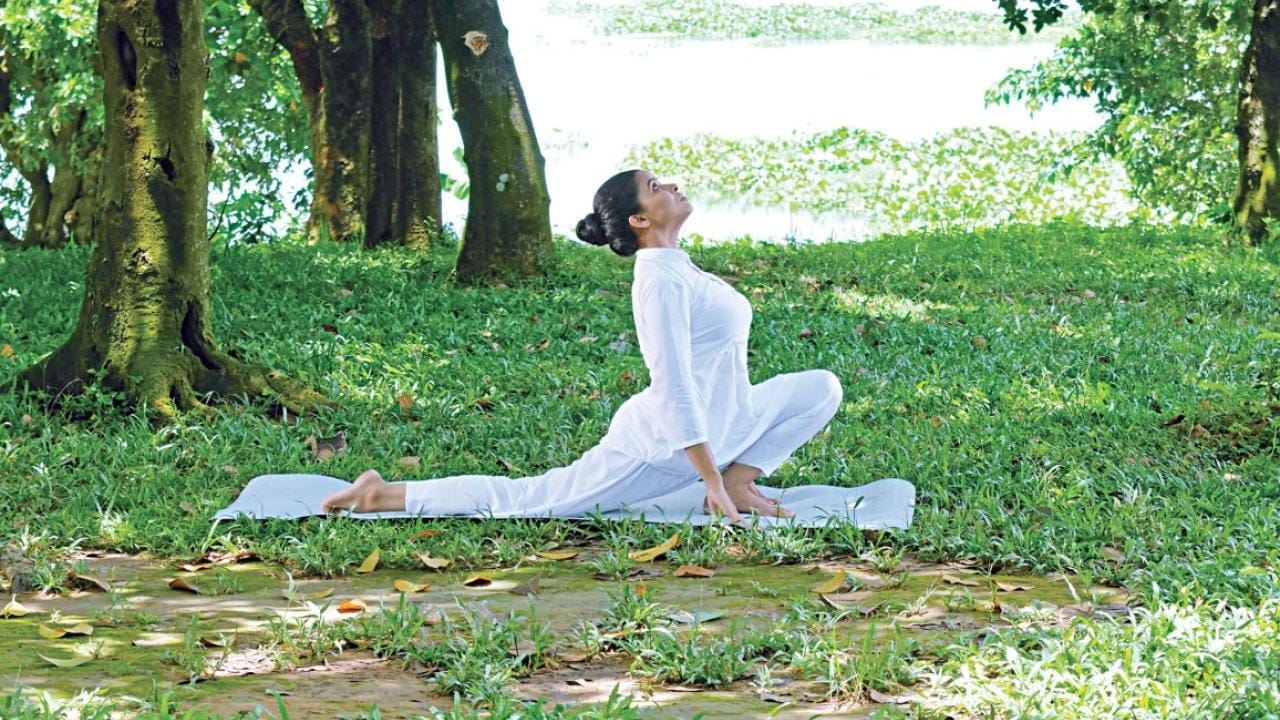In praise of slowness: Rethinking life in a fast-moving Bangladesh

As the economy accelerates, many urban Bangladeshis, particularly the youth, seek meaning beyond the city's hustle and bustle. But in a reality of inflation and ambition, is deceleration even possible?
When we imagine Dhaka's streets, the only picture that comes to mind is the traffic; weirdly, we can hear the image in our minds. This is how the image of a fast-paced Dhaka is embedded in our minds. In this city, everyone is in a hurry, either to reach somewhere or to meet up with performance pressure.
However, there is another side of Dhaka that we sometimes miss. Now that I'm in between jobs and have plenty of free time, I can finally focus on the bigger picture: a quiet scene of someone practising yoga at dawn beside a lakeside park, people reading in cafés or even on the metro, or cycling and walking while embracing nature.

A central question arises: what does it mean to intentionally slow down in a nation racing towards development? Is "slow living" an imported, privileged idea or a sustainable response to modern anxieties? If I need to define "slow living" in Bangladesh, it is not about laziness or rejecting progress. But a mindset emphasising intentionality, practising mindfulness, and quality over quantity.
It might mean: choosing a home-cooked meal with family over another fast-food takeaway; prioritising a hobby (painting, gardening, writing for pleasure) over endless social media scrolling; setting digital boundaries (e.g., no emails or calls before 9 am and after 9 pm) in a culture of always-on availability; even supporting local artisans and slow fashion instead of mass-produced, trend-driven consumption.
Although all these aspects sound intriguing and rejuvenating, the reality is that Bangladesh is different. It is accelerating in various ways. The country's economy is expanding rapidly, with its GDP increasing steadily year after year. Key industries such as technology, apparel, and finance are thriving, particularly in Dhaka and Chattogram. This expansion fosters a competitive and high-pressure work culture, where individuals must frequently work long hours to keep pace. The rapid pace of life in these cities reflects Bangladesh's significant economic progress, which also brings stress and challenges for many workers.

In 2025, approximately 60 million people in Bangladesh are expected to use social media platforms such as Facebook and Instagram (Digital 2025: Bangladesh). This fosters a culture of comparing lives, leading to FOMO (Fear of Missing Out) and pressure to showcase one's success.
Young people often feel stressed trying to keep up with others' perfect online lives. Gen Z and Millennials in Bangladesh face significant pressure to secure good jobs and support their families. Many follow "hustle culture," which emphasises the importance of working hard and being constantly busy to achieve material success. While this pushes them forward, it can also bring stress and worry.
It might mean: choosing a home-cooked meal with family over another fast-food takeaway; prioritising a hobby (painting, gardening, writing for pleasure) over endless social media scrolling; setting digital boundaries (e.g., no emails or calls before 9 am and after 9 pm) in a culture of always-on availability; even supporting local artisans and slow fashion instead of mass-produced, trend-driven consumption.
A counter-movement is on the rise. In Bangladesh, the movement of people living slowly is starting to grow. People are creating calm places, such as yoga studios, cosy coffee shops, community gardens, and book clubs, to help them relax and connect. More people are buying organic food from local farms and handmade goods from small shops, indicating a desire to avoid excessive consumption and the constant pursuit of material goods.
For young people in Bangladesh, slow living isn't just a trend – it's a necessity in the fight against burnout, anxiety, and stress related to climate change. They face pressure to hustle hard to pay for rising rent and education while craving mental peace, meaningful work, and time with loved ones. For them, slow living means small acts, such as taking "digital detox Fridays," listening to podcasts instead of scrolling on their commutes, focusing on joyful productivity, and striving for a better work–life balance. These micro-actions help balance their fast-paced lives and inner needs.

The question of whether slow living is possible in Bangladesh's economy is wrong. The right question is: can Bangladesh afford not to? A proper, sustainable development cannot be built on a foundation of chronic stress and burnout. The slow living movement, in its essence, is not a call to halt progress but to redefine it. It proposes a development model that measures success not only in GDP growth but also in well-being, not only in infrastructural marvels but also in community bonds and mental resilience.
The ultimate wisdom for Bangladesh may lie in learning from the relentless pace of its recent past to consciously choose a more sustainable, deliberate, and fulfilling pace for its future. It is about building a nation where its citizens don't just survive the hustle, but thrive within it — and on their own terms.
Nazmun Afrad Sheetol is an IR graduate, and a Substack writer. Find her at sheetolafrad@gmail.com
Send your articles for Slow Reads to slowreads@thedailystar.net. Check out our submission guidelines for details.



 For all latest news, follow The Daily Star's Google News channel.
For all latest news, follow The Daily Star's Google News channel.
Comments